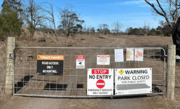'Sketchy': This awkward advert mistake had Aussies demanding change
By
Danielle F.
- Replies 0
In the competitive world of real estate, agents are looking for ways to make their property listings stand out.
High-quality, attractive photos could mean the difference between a listing that lures in potential buyers and one that remains unnoticed.
What happens if photo enhancements go too far and cross the line from enhancement to false advertising?
Several prospective homeowners pointed out a real estate agent's awkward mistake in one of his listings.
The property, based in Noble Park North, had lush greenery in one of its photos.
However, the agent included both edited and unedited photos of the property's exterior in the listing.
The unedited counterpart revealed a less appealing, patchier lawn, far from the greenery first seen in the listing.
This side-by-side comparison raised people's eyebrows and sparked a conversation about the role of photos in real estate listings.
Alice Phuong, the agent behind the listing, admitted to the oversight.
Phuong, an agent from Area Specialist, agreed to remove the unedited photo.
She then stated that the edited version simply looked 'better' and added 'more colour'.
However, Phuong's explanation did little to quell the concerns of prospective buyers and onlookers.
One commenter emphasised the importance of conducting a thorough inspection of a property.
'I never trust the photos; always inspect the place inside out before making a decision, even if they try to cover it up with display furniture,' the comment read.
Another labelled the practice as 'sketchy', highlighting the potential for such edits to mislead buyers.
The incident reignited calls for legislative action to address the issue of photo editing in real estate advertising.
Phuong's listing blunder was not an isolated incident.
Last April, a rental property in Leneva, Victoria, featured an unnaturally green lawn in its listing photos; it was immediately flagged as fake by prospective tenants.
Similarly, a Melbourne property's photo was called into question for an oddly edited tree.
The agent later attributed the blunder to an overexposed photo due to the use of a flash.
Critics argued that editing photos to enhance a property's appeal could fall under 'false advertising'.
Editing photos far from its original estate was seen as a 'disingenuous tactic' to increase traffic to open homes.
Many prospective homeowners' sentiments became clear: there's a fine line between optimising a photo's visual appeal and deceiving potential buyers.
These examples underscored a growing concern among Australians that property listings may not always be what they seem.
As the debate continues, there has been a growing consensus that transparency should be paramount in real estate advertising.

We encourage everyone always to conduct their due diligence and not to shy away from asking tough questions when viewing properties. Have you encountered a similar issue when looking for a home back in the day? Please share your stories and thoughts about this issue with us in the comments section below.
High-quality, attractive photos could mean the difference between a listing that lures in potential buyers and one that remains unnoticed.
What happens if photo enhancements go too far and cross the line from enhancement to false advertising?
Several prospective homeowners pointed out a real estate agent's awkward mistake in one of his listings.
The property, based in Noble Park North, had lush greenery in one of its photos.
However, the agent included both edited and unedited photos of the property's exterior in the listing.
The unedited counterpart revealed a less appealing, patchier lawn, far from the greenery first seen in the listing.
This side-by-side comparison raised people's eyebrows and sparked a conversation about the role of photos in real estate listings.
Alice Phuong, the agent behind the listing, admitted to the oversight.
Phuong, an agent from Area Specialist, agreed to remove the unedited photo.
She then stated that the edited version simply looked 'better' and added 'more colour'.
However, Phuong's explanation did little to quell the concerns of prospective buyers and onlookers.
One commenter emphasised the importance of conducting a thorough inspection of a property.
'I never trust the photos; always inspect the place inside out before making a decision, even if they try to cover it up with display furniture,' the comment read.
Another labelled the practice as 'sketchy', highlighting the potential for such edits to mislead buyers.
The incident reignited calls for legislative action to address the issue of photo editing in real estate advertising.
Phuong's listing blunder was not an isolated incident.
Last April, a rental property in Leneva, Victoria, featured an unnaturally green lawn in its listing photos; it was immediately flagged as fake by prospective tenants.
Similarly, a Melbourne property's photo was called into question for an oddly edited tree.
The agent later attributed the blunder to an overexposed photo due to the use of a flash.
Critics argued that editing photos to enhance a property's appeal could fall under 'false advertising'.
Editing photos far from its original estate was seen as a 'disingenuous tactic' to increase traffic to open homes.
Many prospective homeowners' sentiments became clear: there's a fine line between optimising a photo's visual appeal and deceiving potential buyers.
These examples underscored a growing concern among Australians that property listings may not always be what they seem.
As the debate continues, there has been a growing consensus that transparency should be paramount in real estate advertising.
Key Takeaways
- A real estate agent's mistake was made public when both edited and unedited photos of a property were included in a listing.
- The mistake was spotted on a listing for a unit in Noble Park North, with the edited photo showing greener grass compared to the reality.
- Real estate agent Alice Phuong acknowledged the error and stated that the edited photo was meant to look 'better' and add 'more colour'.
- There have been calls for new legislation to prevent the editing of property photos in listings, as such practices could lead to 'false advertising'.








